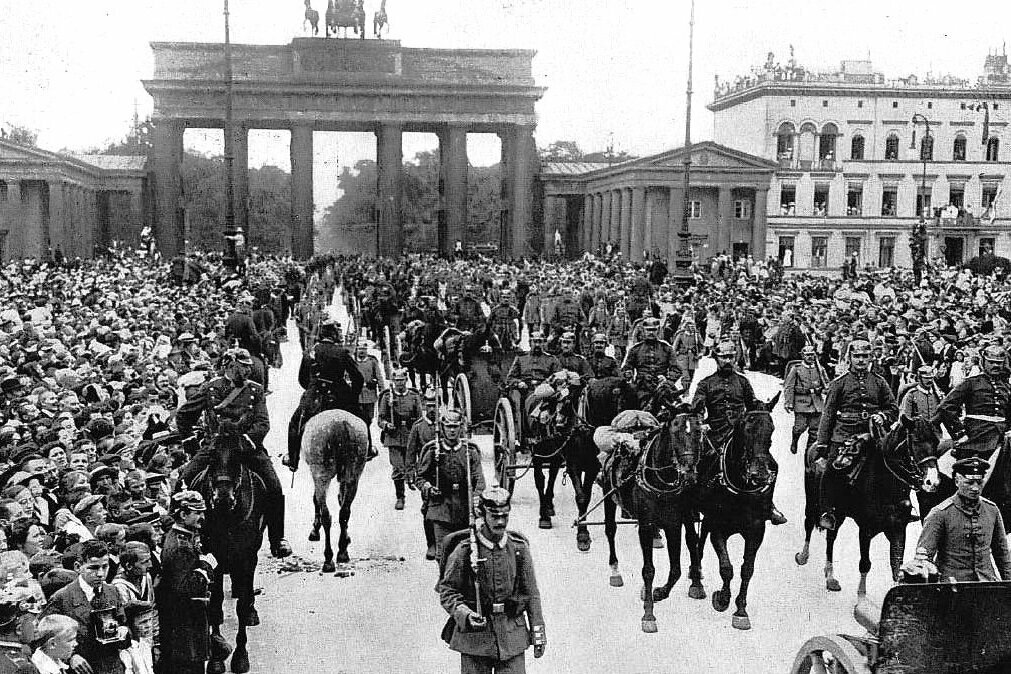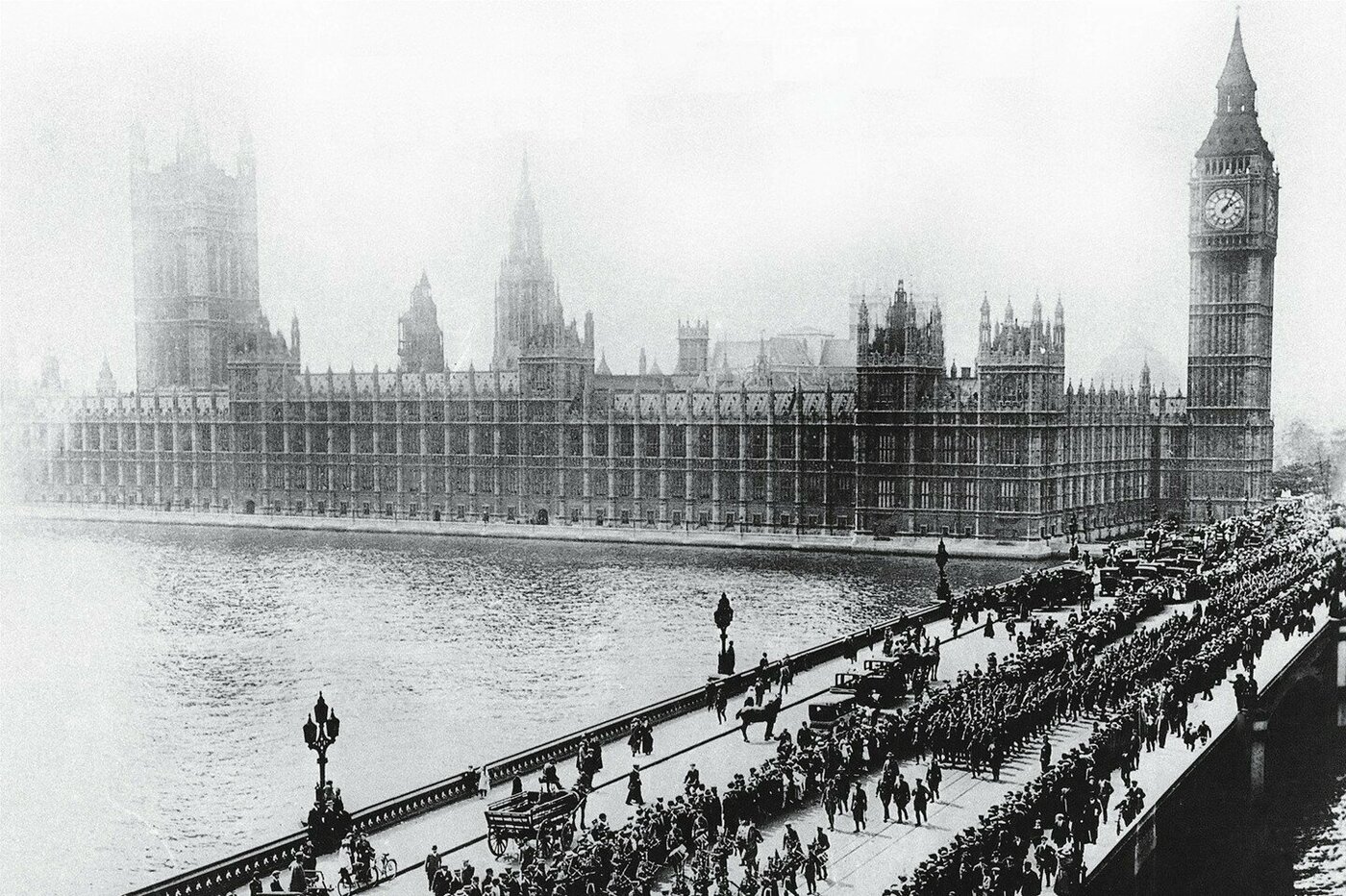 Conference
Conference
The Meaning of 1914
A Conference to mark the Centenary of the Outbreak of the Great War
Conference
27–28 September 2014

Conveners: Simon Head, The New York Review of Books Foundation; Margaret MacMillan, St Antony's College
Venue: Nissan Lecture Theatre, St. Antony’s College, Oxford
This year, 2014, marks the centenary of the outbreak of the Great War, which is the occasion for our conference. This year also marks the seventy fifth anniversary of the outbreak of the Second World War in September 1939. Yet even though only twenty five years separate the outbreak of the two World Wars, a period of time that in present day history takes us back to something so contemporary as the coming down of the Berlin Wall in 1989, the events of August 1914 seem to us infinitely more distant and remote than those of September 1939, belonging more to the nineteenth century than the twentieth.
The reason for this is perhaps that, of the six principle belligerents of 1914 four, Germany, Austria-Hungary, Russia and Turkey were ruled wholly or in part by authoritarian monarchs, surrounded by aristocratic court entourages, and all endowed with significant personal, extraparliamentary powers. None of these regimes survived the war. A fifth belligerent, Britain, although a working parliamentary democracy in 1914, was ruled by an elite which combined elements of the old aristocracy with a non-aristocratic noblesse de robe, but with the style and culture of the former still dominant. This gave the British governing class at least a surface, ancient regime resemblance to its continental counterparts.
In his luminous volume of memoirs The World of Yesterday Stefan Zweig looked back on this pre 1914 world as a Golden Age. The World of Security was the title of his opening chapter. Of his Viennese childhood and youth he wrote: ‘everything in this wide domain was firmly established, immovably in its place, with the Old Emperor at top of the pyramid... and nothing in the well calculated order of things would change’. When he wrote his memoirs Zweig was a refugee from the Nazis and within a year of his own suicide. He had perhaps good reason to look back on his world of yesterday as a paradise forever lost. Yet this sense of loss was widely felt among those who came of age before 1914.
But what exactly was lost? If this European world of yesterday was a place of such security and, as Zweig The Meaning of 1914 Introduction also writes, of prosperity and of liberal enlightenment, why did it come to an end in the way that it did; why did the leaders of Europe inflict upon themselves perhaps the greatest catastrophe in their history, bringing upon themselves death and destruction on a scale not see since the Thirty Years War and with the war becoming, after a twenty year lull, itself a new Thirty Years War, with its second phase even more destructive than its first?
In his Rhodes Memorial Lectures of 1929, still among the most powerful and ambitious accounts of the origins of the war, the great French historian Élie Halévy warned his Oxford audience that he would be shunning diplomatic chronologies: ‘I shall not dwell upon the story of the last week before the war as to what such and such a Sovereign, or Prime Minister, or Foreign Secretary should have done or not done’. These were ‘pills to cure an earthquake’. Halévy’s concern was with the earthquake itself. But it is a characteristic of earthquakes that the pressures building up beneath the earth’s outer crust can remain undetected by those on the surface even as the stresses beneath reach breaking point.
Below the surface of the pre-1914 world, with its opulence and apparent solidity, the forces of change such as socialism or feminism or even of destruction such as nihilism or militarism, were gaining strength. For the ruling elites the temptation was to see war as a way of solving the crises and papering over the cracks in society. As another great French historian, Marc Bloch, has said, all the facts of history are in the end facts of psychology; they are the sentiments and judgements of human actors. The diplomatic and political chronologies can reveal how a particular cast of actors responded to Halévy’s collective forces. The challenge for the historian is to avoid looking at the collective forces in isolation from the human actors striving to deal with them.
But who were the human actors of 1914, how were they chosen, and by whom: Did these methods of selection produce statesmen (there were no women) of high quality ~ or the reverse? How stable was the institutional and political setting in which the statesmen had to perform ; and to what extent were they themselves subject to Halévy’s ‘ collective feelings and movements of public opinion’; or what James Joll has called the unspoken assumptions of the times, and how did this affect their judgment in times of crisis and stress? In his Rhodes lectures Halévy also describes ‘the disturbance of equilibrium’ which arises when ‘one nation is found to have gained immensely in economic and military strength at the expense of one or many of the others’. Driving the ‘disturbance of equilibrium’ in the pre-1914 years was the accelerating pace of industrialization in the closing decades of the nineteenth century and the opening decades of the twentieth, with the new industrial giantism of mass production and the application of its methods to the economy of armaments.
The rise of Germany as an industrial and military power was among the most dramatic manifestations of this economic and technological disequilibrium, giving rise among Germany’s neighbours to something we are very familiar with from the Cold War era ~ a European version of the arms race with its overhang of insecurity and suspicion which in turn was a backdrop to the diplomatic crises of the pre-war years. But there was also the German fear of Russia as an emerging industrial and military power, and the belief that, to head off the threat of encirclement by the Entente powers of Russia, France, and Britain, Germany should not postpone the day of reckoning.
We think that the task of understanding these diverse forces and of weaving them together still poses a profound challenge of historical analysis and interpretation and one which can illuminate the world we are living in today. As representatives of the lead sponsors of the conference we want to thank all those who are joining us in Oxford to participate in what we are confident will be a memorable event, and also to thank all our fellow sponsors for their generosity in funding the conference and making it possible.
Conference programme (PDF file)
